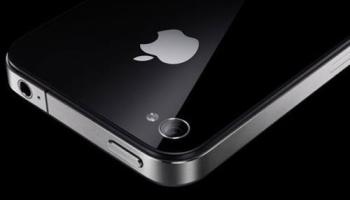

Google’s Android smartphone web browser proved 52 percent faster than Apple’s iPhone Safari browser, according to software maker Blaze, whose findings quickly proved controversial.
In a 17 March posting, Blaze pitted an Apple iOS 4.3-based iPhone 4 against the Android 2.3 Samsung Nexus S in 45,000 tests across 1,000 Fortune 1000 websites.
The company loaded multiple pages several times at different times over Wi-Fi (so as not to muddle results by using carriers’ unpredictable 3G networks), and found that the Nexus S registered a median load time of 2.133 seconds, versus iPhone 4’s median load time of 3.254 seconds.
The Nexus S proved faster than iPhone 4 in 84 percent of the websites tested, with iPhone 4 beating Android in 16 percent of the comparisons.
“This demonstrates Android wasn’t just faster overall, but rather provided a faster browsing experience 4 times out of 5,” wrote Blaze CTO Guy Podjarny.
The finding is sure to be contentious at a time when Android handsets are overwhelming the iPhone in sheer volume around the world. Android took over the US smartphone lead from RIM last month after passing Apple a few months ago, comScore found.
Yet Blaze’s test faced questions for its methodology. The company measured the iPhone and Nexus S using its custom WebView for Android and and UIWebView for iPhone performance testing applications, which used each platform’s embedded web viewers instead of the official Android and Safari browsers.
While Blaze claimed that page-load performance of its the embedded browsers is identical to the official browsers, Apple told The Register that UIWebView did not use the Safari browser updates featured in iOS 4.3 and therefore do not offer the same performance as apps and web pages run within Safari.
For example, Apples Safari browser included the Nitro JavaScript engine that Apple said runs JavaScript up to twice as fast as its predecessor.
“They didn’t actually test the Safari web browser on the iPhone,” Apple spokeswoman Trudy Muller told The Register. “Instead, they only tested their own proprietary app which uses an embedded web viewer”.
Blaze’s Podjarny wrote another post acknowledging that while Apple’s iPhone page loads could be faster, Blaze stands by its statement that Android’s embedded browser is faster than iPhone’s.
Interestingly, Blaze found Android’s load-speed advantage was neutralised on mobile-specific sites. Android 2.3 offered a median load time of 2.085 seconds vs. iPhone 4.3’s own 2.024 on these lighter websites optimised for the smaller screens used in smartphones.
However, on non-mobile sites, Android enjoyed an average load time of 2.180 seconds, or 59 percent faster than the iPhone’s 3.463 seconds.
Blaze argued that Android’s speed superiority over iPhone in handling non-mobile sites is key for tablets, which use the same OS and hardware components as phones.
“Users expect the full experience on tablets, not the simplified mobile sites. This means Android’s edge will make an even greater impact,” Podjarny wrote.
Denial from TSMC, after multiple reports it was in talks with Intel over a joint…
CEO Tim Cook talks to Trump official, as IDC notes China's smartphone market growth, and…
Another big name chip maker expects a hefty financial charge, after the US tightened rules…
More bad news for Google. Second time in less than a year that some part…
Federal office that tackled misinformation and disinformation from hostile nations is closed down, after criticism…
After Nvidia admits it will take $5.5 billion charge as Trump export limits of slower…